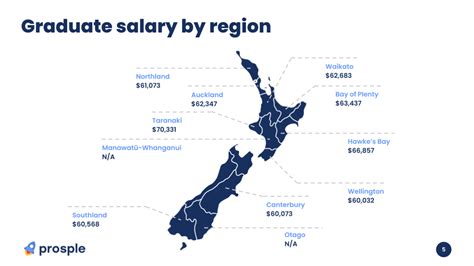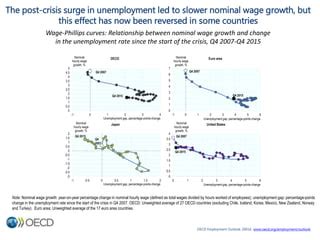For anyone starting their career, moving to a new country, or re-entering the workforce, understanding the foundational income level is a critical first step. In New Zealand, the minimum wage serves as a crucial benchmark, but it's just the starting point on a path toward significant earning potential. While the national minimum wage provides a legal floor, the average salary across the nation is substantially higher, with top professionals in high-demand fields earning well into six figures. This guide will break down the official minimum wage, what it means, and the key factors that will help you earn far beyond it.
What is the Minimum Wage in New Zealand and What Does It Do?

The minimum wage is not a job role, but a legal standard set by the New Zealand Government. It is the lowest hourly pay rate that an employer can legally pay their employees. The primary purpose of the minimum wage is to ensure a fair and equitable baseline income, protecting workers—especially those in lower-skilled roles or with less bargaining power—from exploitation.
The government reviews these rates annually, with changes typically taking effect on April 1st. It's a critical component of the country's economic policy, designed to balance the needs of workers with the economic health of businesses.
The Current Minimum Wage Rates in New Zealand

It's essential to know the specific, official figures. There are different tiers of the minimum wage based on a worker's situation, such as age and experience.
According to Employment New Zealand, a division of the Ministry of Business, Innovation and Employment (MBIE), the minimum wage rates effective from April 1, 2024, are:
- Adult Minimum Wage: NZ$23.15 per hour. This applies to all employees aged 16 and over who are not classified as starting-out workers or trainees.
- This equates to NZ$926 for a 40-hour week before tax.
- This equates to an annual income of NZ$48,152 for a full-time employee before tax.
- Starting-Out Minimum Wage: NZ$18.52 per hour. This rate applies to workers aged 16-17 with less than six months of continuous employment with their current employer, as well as 18-19-year-olds who have been on a benefit for six months or more.
- Training Minimum Wage: NZ$18.52 per hour. This applies to employees aged 20 or over who are completing recognized industry training involving at least 60 credits a year.
It is important to note that these are the legal minimums. Many employers choose to pay a "Living Wage," which is an independently calculated hourly rate that a worker needs to pay for life's necessities and participate as an active citizen in the community. The New Zealand Living Wage rate for 2023/2024 is NZ$26.00 per hour.
Beyond the Minimum: Key Factors That Influence Your Salary in New Zealand

While the minimum wage is the legal floor, your actual earning potential is determined by a combination of factors. Moving beyond this baseline requires strategic career planning. Here’s how various elements impact your salary.
### Level of Education
Education is a powerful lever for increasing your income. While many roles at the minimum wage level require no formal qualifications, a degree or vocational certificate unlocks doors to higher-skilled, better-paying professions.
- Vocational Training & Diplomas: Qualifications in trades like construction, plumbing, or electrical work are in high demand and command salaries significantly above the minimum wage.
- Bachelor's Degrees: Graduates in fields like business, IT, engineering, and healthcare typically start their careers on salaries ranging from NZ$55,000 to NZ$70,000, according to data from graduate recruitment reports and salary aggregators like Payscale.
- Postgraduate Degrees: A Master's or PhD can lead to specialized, senior, or research-based roles with earning potential often exceeding NZ$100,000, particularly in technical and scientific fields.
### Years of Experience
Experience is arguably the single most significant factor in salary growth. As you accumulate skills, industry knowledge, and a track record of success, your value to an employer increases exponentially.
- Entry-Level (0-2 years): Professionals in this stage are often in junior roles, learning the ropes. Their salaries are typically at the lower end of the professional scale for their field but still well above the minimum wage.
- Mid-Career (3-8 years): With proven competence, professionals can move into senior or team lead positions. This is where significant salary jumps occur.
- Senior/Expert Level (8+ years): Senior professionals, specialists, and managers have the highest earning potential, often negotiating packages that include bonuses, stock options, and other benefits. For example, a senior software developer in New Zealand can earn between NZ$120,000 and NZ$160,000+, as reported by sites like Glassdoor and local tech salary guides.
### Geographic Location
Where you work in New Zealand has a direct impact on your salary. Wages are often higher in major urban centers to reflect the greater concentration of large companies and a higher cost of living.
- Auckland & Wellington: These are New Zealand's primary economic hubs. They host the headquarters of most major corporations and have the highest average salaries. However, they also have the highest housing and living costs.
- Christchurch: As the largest city in the South Island, Christchurch has a strong and growing job market, particularly in manufacturing, technology, and agriculture, with competitive salaries.
- Regional Areas: Cities like Hamilton, Tauranga, and Dunedin offer growing opportunities with a lower cost of living, though average salaries may be 5-15% lower than in Auckland or Wellington.
### Company Type and Industry
The type of company you work for and the industry it operates in are major salary determinants.
- Industry: Sectors with high demand for skills pay more. In New Zealand, the top-paying industries include Information Technology, Finance & Banking, Engineering, and specialist healthcare roles. Roles in hospitality or retail are more likely to be clustered around the minimum or living wage.
- Company Size: Large multinational corporations generally have more structured and higher-paying salary bands than small-to-medium enterprises (SMEs) or startups.
- Public vs. Private Sector: While private sector companies may offer higher top-end salaries, public sector roles (government jobs) often provide excellent job security, benefits, and structured salary progression.
### Area of Specialization
Within any given field, specialization can dramatically increase your earnings. A generalist marketing coordinator will earn less than a specialist in digital marketing analytics or SEO. A general practice nurse will earn less than a nurse anesthetist. Identifying and developing a niche, in-demand skill set is a reliable strategy for maximizing your income.
Job Outlook and Wage Growth in New Zealand

The overall health of the New Zealand labour market is positive, with a consistent demand for skilled workers. The Ministry of Business, Innovation and Employment (MBIE) provides regular forecasts on the labour market. Key takeaways include:
- High-Growth Sectors: The most significant job growth is projected in high-skilled industries, particularly in business services, health care, social assistance, and education. Technology remains a powerhouse, with a constant need for developers, cybersecurity experts, and data analysts.
- Demand for Trades: There is a persistent, high demand for skilled tradespeople in construction and infrastructure projects across the country.
- Wage Growth: There has been consistent upward pressure on wages, driven by a tight labour market and inflation. This means that even for roles starting near the minimum wage, there is potential for steady salary increases over time.
*(Note: The U.S. Bureau of Labor Statistics (BLS) provides outlook data for the United States. For New Zealand, authoritative sources like MBIE and Stats NZ are the correct equivalents.)*
Conclusion: Using the Minimum Wage as a Career Launchpad

Understanding New Zealand's minimum wage is essential, but it's most valuable when viewed as a legal safety net and a starting point, not a long-term destination. Your true earning potential is a dynamic figure that you have the power to influence.
Key Takeaways:
- The adult minimum wage in New Zealand is NZ$23.15 per hour (as of April 1, 2024).
- This is the legal floor, not the national average. Most skilled workers earn significantly more.
- To increase your salary, focus on strategic levers: pursue further education or training, gain valuable experience, target high-growth industries, and consider specializing in a niche area.
- Your geographic location within New Zealand will also play a role in your overall compensation package.
Whether you are a student planning your future, a new arrival in the country, or a professional looking to advance, the path to a rewarding and high-earning career in New Zealand is clear. By investing in your skills and strategically navigating the job market, you can build a career that offers financial security far beyond the minimum wage.
